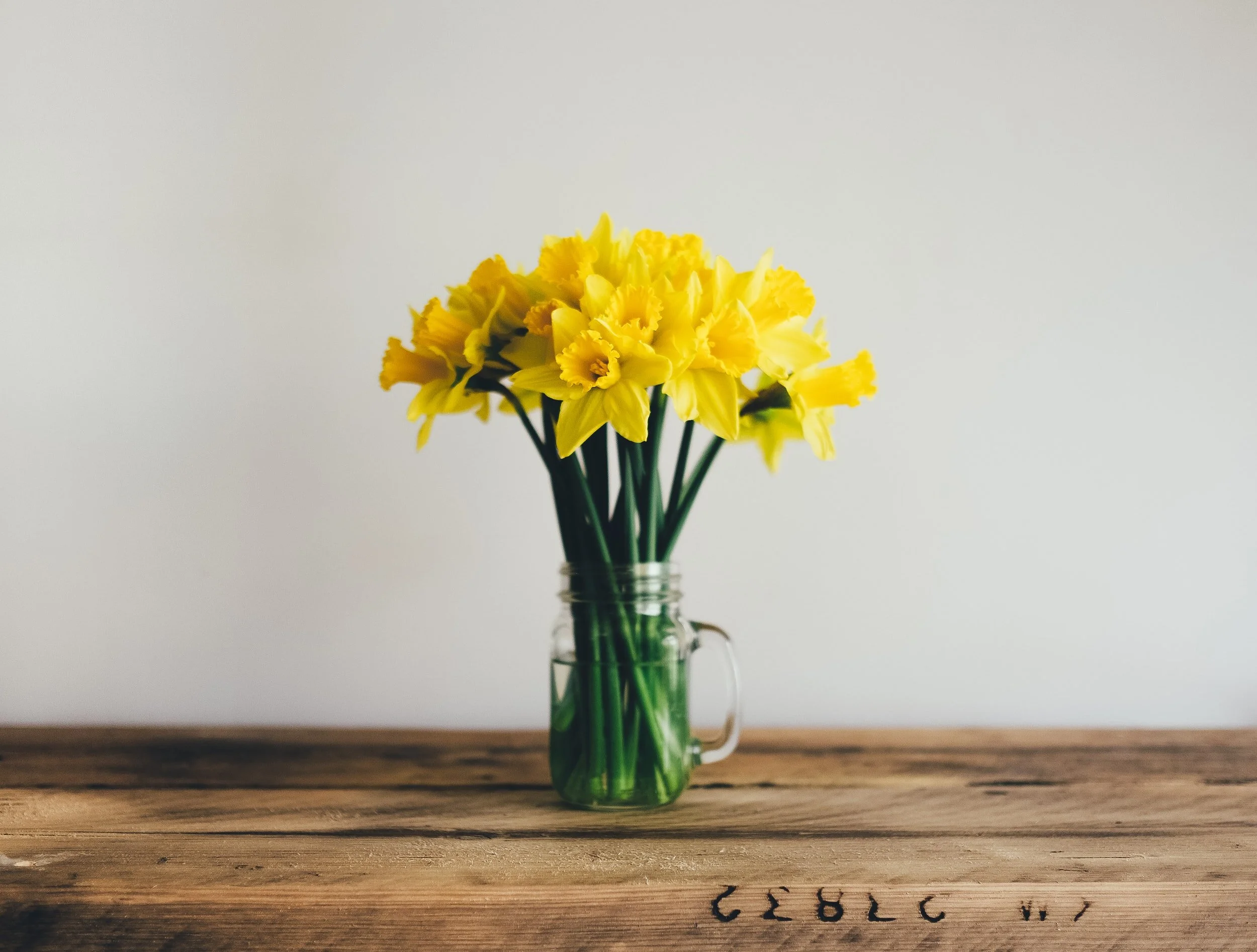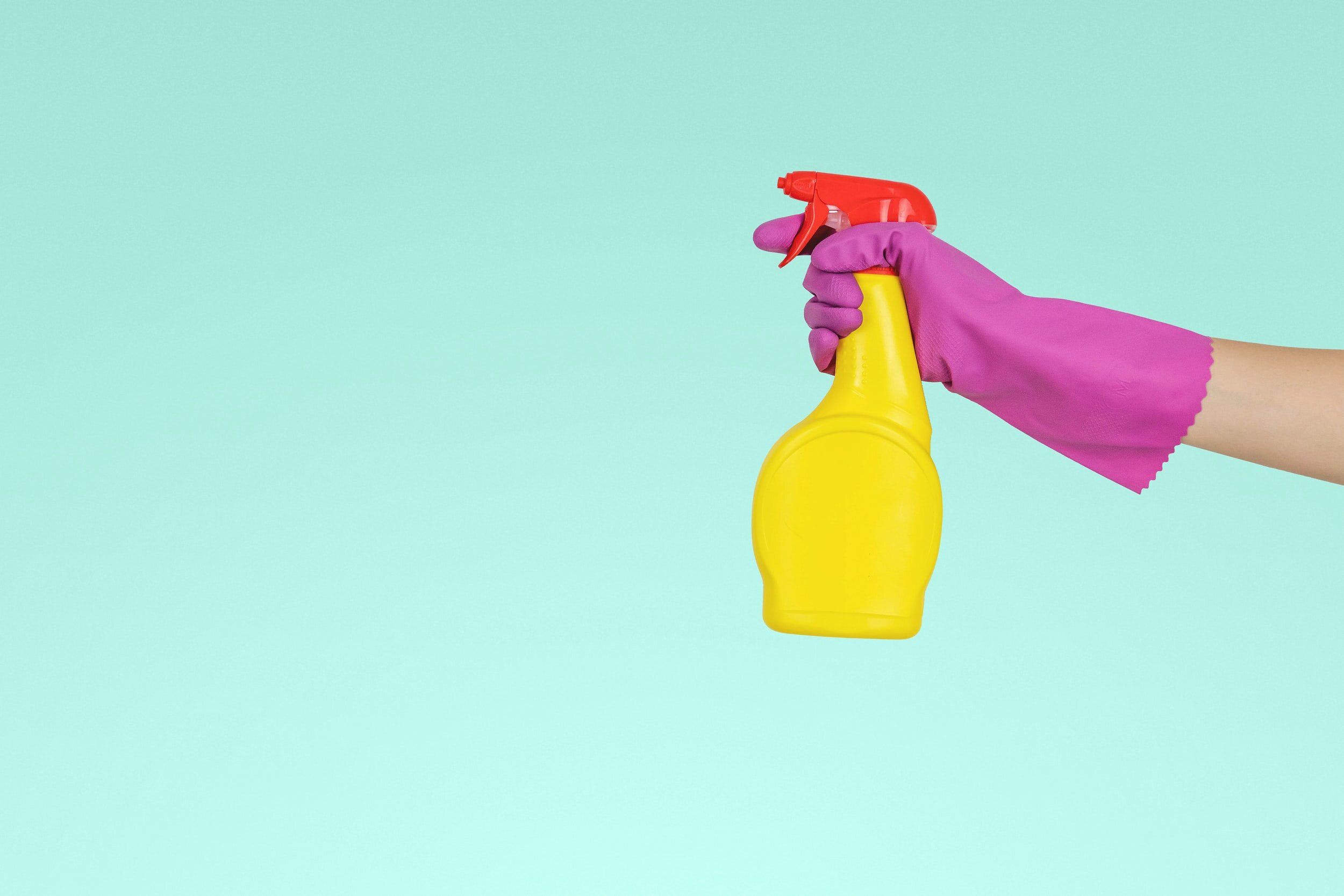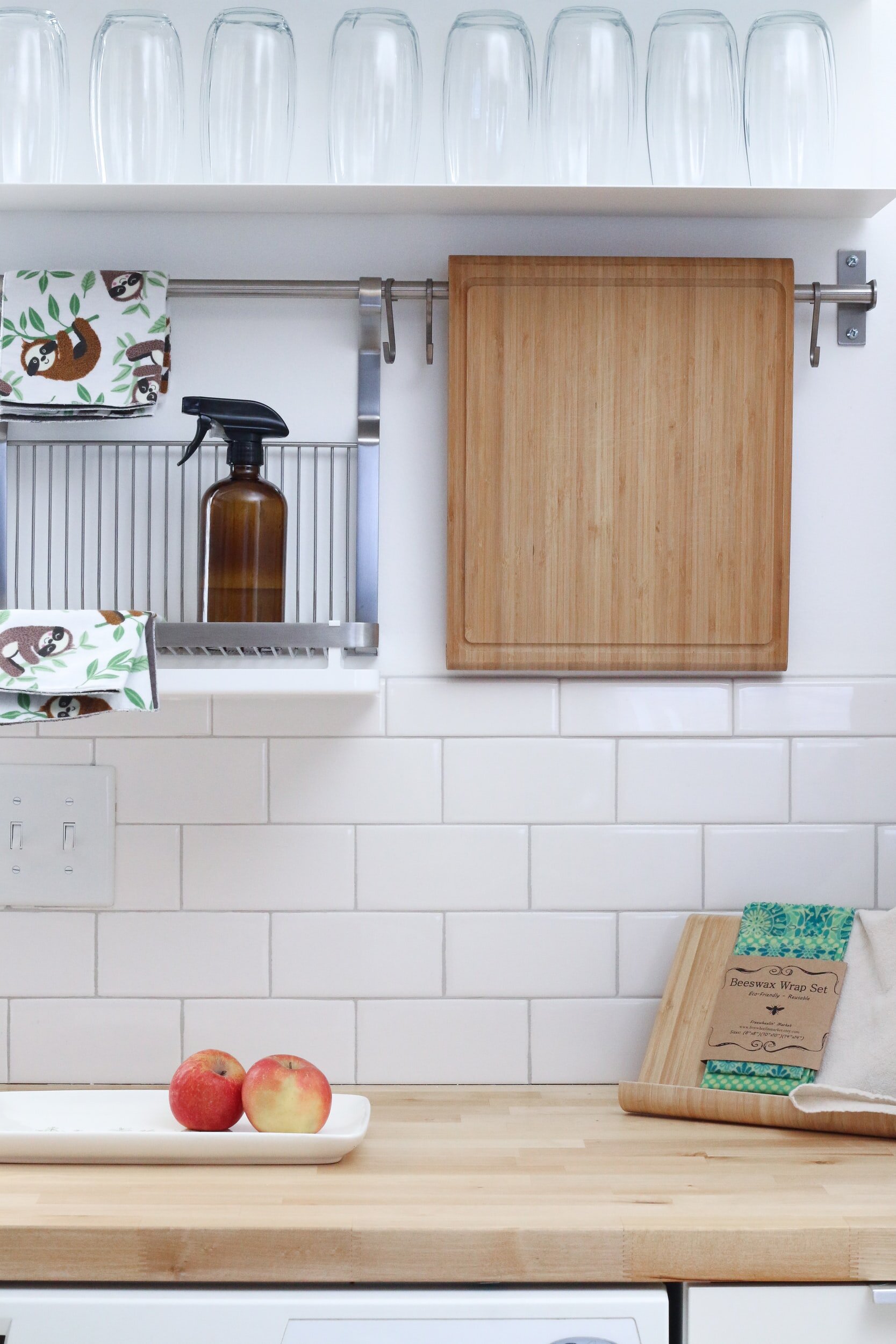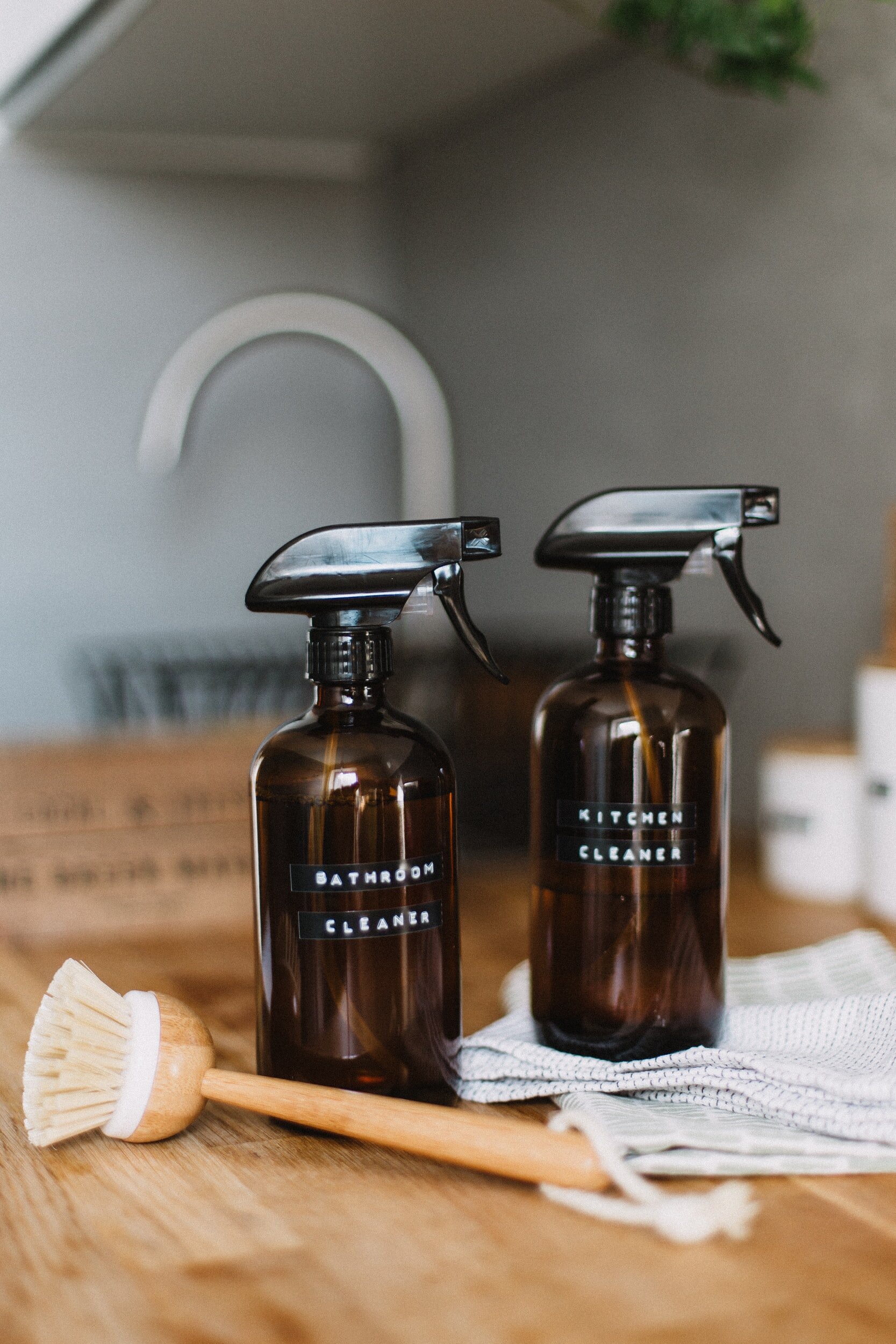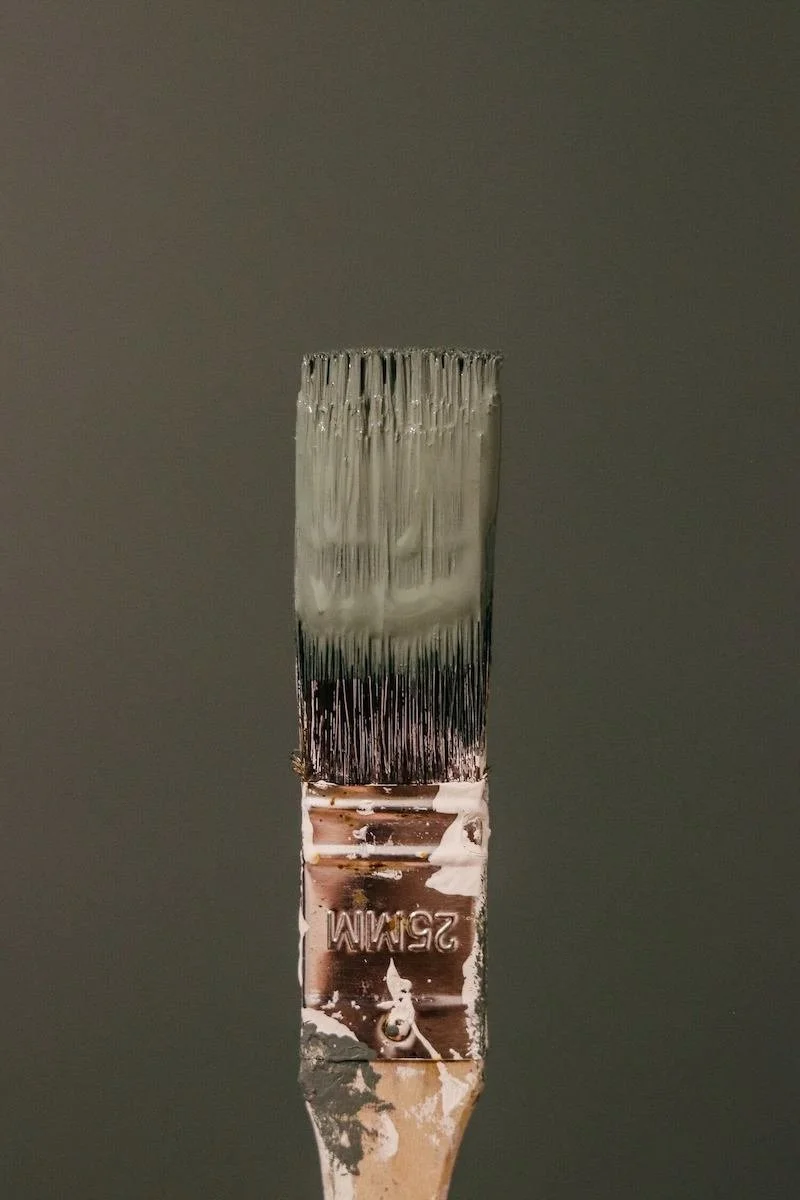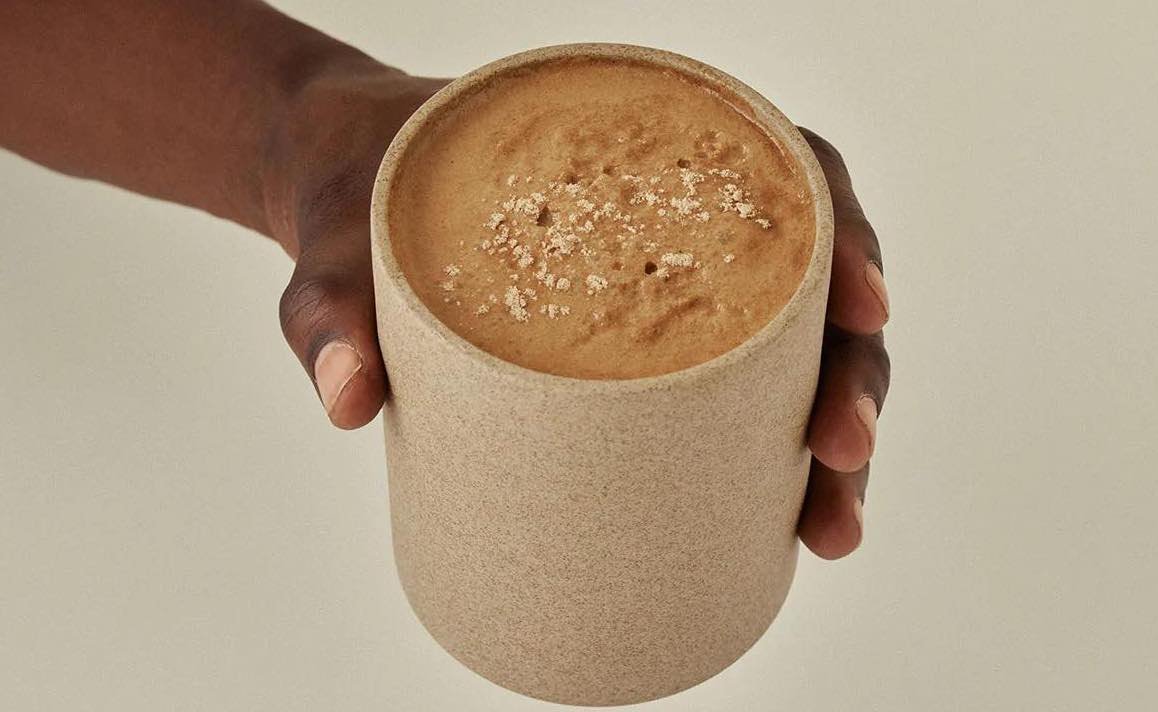8 Green Household Cleaning Brands for Eco-friendly Living
Spring cleaning is a term many are familiar with, but what about green cleaning?
The word “green” has popped up more and more frequently, placed before a variety of words related to lifestyle and living, including diet, fashion, and travel.
Green refers to sustainable practices within given industries, as well as environmental considerations.
This post does contain some affiliate links which means The Honest Consumer may receive a commission if you decide to purchase, however, at no additional cost to you!
Recently the cleaning product industry has seen an increase in green products, Research and Markets reports that green cleaning products market is predicted to grow from 2017’s $17.90 billion industry to $27.83 billion by the end of 2024 at a Compound Annual Growth Rate (CAGR) of 6.50%.
The increase of natural and clean products has made consumers think about what is used to clean our homes, schools, and offices, and what impact these products might have on people, animals, and the planet.
Green cleaning is about making your cleaning habits eco-friendly, while also keeping you and those around you safe – because while the standard products consumers are using may leave surfaces clean, these products could be negatively impacting our health and the health of the planet.
What is in Toxic Household Cleaners?
Many cleaning products contain volatile organic compounds (VOCs), which adversely impact indoor air quality and contribute to smog formation in outdoor air.
The MN Department of Health reports that once these chemicals are in our homes, they are released or “off-gas” into the indoor air we breathe.
They may or may not be able to be smelled, and smelling is not a good indicator of health risk.
VOCs can potentially leading to headaches, nausea, and dizziness, as well as exacerbating asthma symptoms. Long-term and continuous exposure may also be linked to cancer.
Other harmful ingredients found in cleaning products include phthalates, triclosan, quaternary ammonium compounds (quats), butoxyethanol, chlorine, and parabens.
If your tongue’s all twisted up after tripping over this tricky list, just wait: it gets even trickier.
Federal law does not require US cleaning companies to disclose all ingredients in their products; so even if you’re familiar with tricky names, you may not find them listed. However, certain state laws are taking steps towards changing this norm.
What are some of the dangers of household cleaning products?
It’s not just humans who are affected by these harmful ingredients. These toxic cleaning products also pose a risk to pets.
Not only are our furry friends exposed to chemicals that infiltrate the air, but the innate curiosity and playfulness of cats and dogs may lead them to accidentally ingest them when licking or chewing surfaces that have been sprayed or wiped with a toxic cleaning product. And let’s remember that children can be pretty curious too and not averse to licking or chewing things as well.
Environmental Impacts of Harmful Chemical Cleaning Products
Along with people and pets, the planet is also impacted by our use of cleaning products.
It’s not just air quality that is negatively impacted, but water quality too when harmful chemicals wind up in rivers and streams.
Polluted water inevitably enters aquatic life, bringing it full circle back to humans as it makes its way into the food chain.
It’s not only the chemicals in cleaning products that cause problems for the environment – what’s on the outside causes damage too.
Cleaning products more often than not come in plastic bottles that end up in landfills.
Of all the plastics sent to landfills, 79% is transported to oceans, less than 10% is recycled, and 12% is incinerated.
It’s also important to consider how those plastic bottles get to stores, which means transport and shipping, which equates to increased carbon emissions contributing to human-induced climate change.
How to find safe, sustainable, non-toxic cleaners?
Green living has led to a revolution in fashion, food, travel, tourism, and of course, cleaning products in an effort to improve quality of life, protect oceans, and mitigate climate change, amongst many other social and environmental concerns.
Cleaning your home may seem like a simple step, but it can make a big difference.
Once consumers are aware of how cleaning products impact our health and environment, we can make better choices when shopping and adopt sustainable habits.
While consumers may not find all harmful ingredients listed on cleaning product labels, that doesn’t mean you should ignore them.
By becoming acquainted with these ingredients and mindful of certain terms, you can find clues to help you make safer choices.
For example: avoid products with labels such as “caution”, “corrosive” and “warning”. It’s a sign it may contain harmful ingredients.
A better word to look for when shopping for non-toxic cleaning products is “free”.
These can include products that are free of dyes and fragrances. While the term “free” may be helpful, be wary of terms such as “eco-friendly” or “green”.
These are not well regulated and may thus be loosely interpreted and applied in a practice known as greenwashing.
Rather become familiar with natural ingredients used in cleaning products like plant-based components, vinegar, baking soda, and essential oils.
The good news is that there are brands out there championing a green cleaning revolution.
Eco-friendly Cleaning Product Brands
Finding safer, sustainable, and eco-friendly alternatives will help you become part of the green cleaning revolution.
If you’re looking for a leaping-off point, here are a few brands to look out for. You’ll find these in-store, online, or both.
Even better: these brands are often family-driven and planet-focused.
Cleancult: Non-Toxic Zero Waste Cleaning Products
From all-purpose cleaners and soaps to laundry detergent and dishwasher tablets, Cleancult has you sorted from kitchen to bathroom.
Cleancult’s non-toxic, plant-based formulas harness the power of coconuts and other biodegradable elements, creating a clean that’s uniquely tough on grit and grime but gentle on consumers and the earth.
Cleancult’s innovative refill system makes it easy for consumers to clean sustainably, with 100% recyclable packaging made in the USA, carbon-neutral shipments, and natural, biodegradable formulas.
Discover refillable dish soap, hand sanitizer, laundry detergent, all purpose cleaner, and more.
Public Goods: Eco-Conscious Cleaning Products
Public Goods cleaning solutions are vegan-friendly, biodegradable and eco-friendly.
Public Goods household cleaners are free of dye, synthetic foaming agents, unnatural preservatives, water softening agents, pH adjusters, buffering agents, phthalates, sodium lauryl sulfate, parabens, nor anything from formaldehyde.
Public Goods also ofters 100% recyclable refills for select cleaning products. Green shoppers can find hand soap, dish soap, glass cleaner, bathroom cleaner, tree free paper towels, & more.
Select product bottles are made from a sugarcane-based resin.
This material is a sustainable alternative to petroleum-based plastic, but it’s still plastic and needs to be recycled.
When I received my box from Public Goods all of the packaging was either recyclable or compostable which is great.
Dropps: Green Cleaning Products That Work
Dropps is an innovative brand of plant-based cleaning products encouraging consumers to take part in eco-conscious cleaning.
With responsibly sourced materials and eco-friendly packaging, Dropps is the perfect brand to get conscious consumers excited about doing laundry or running the dishwasher.
Dropps pods are free of dyes, phthalates, and phosphates and come in compostable packaging with carbon-neutral shipping.
Be sure to use the discount code HONESTCONSUMER20 for 20% off your purchase. I’ve been using the dishwasher pods and laundry detergent for a few years now.
Blueland’s Zero Waste Cleaning Products
Ditch the plastic containers with Blueland's cleaning products. Blueland's starter kit comes with a reusable spray bottle and tablets. Consumers just add water and the tablet to the bottle to create their cleaners.
This refillable bottles can be filled up again by purchasing more tablets making this a zero waste cleaning solution. Blueland offers multi-purpose cleaner, glass + mirror cleaner, bathroom cleaner, toilet cleaner, and more.
Biom’s Cleaning Wipes
Want the convenience of disposable sanitizing wipes without the guilt of dumping them into a landfill? Biom's All Purpose and Sanitizing Wipes are 100% plant-based, plastic-free, and biodegradable.
Grove Collaborative: Non-Toxic Cleaning Products
While Grove Collaborative is a marketplace for many things, Grove actually has their own line of cleaning products that use organic ingredients when possible and never use synthetic fragrance, just essential oils and other botanical-based ingredients.
These eco cleaning products are free from ammonia, chlorine, phthalates, parabens, and more.
Grove also requires their partner brands to be non-toxic, provide ingredient transparency, focus on plant based formulas, be 100% cruelty free, have ethical supply chains, and choose sustainable materials.
Grove is a certified B Corporation that is pledging to be plastic free by 2025.
Hopefully this guide helped give you some options for purchasing the best eco-friendly cleaning products!
For more tips on sustainable lifestyle be sure to follow The Honest Consumer on social media.

